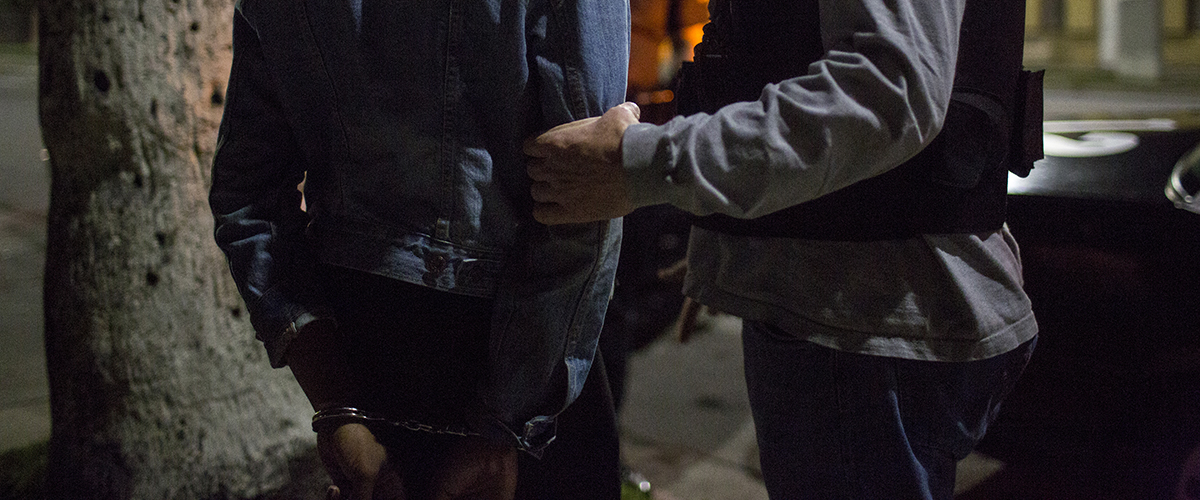Collaboration Diversion Incarceration Trends December 11, 2017
Long a global leader in incarceration rates and the subject of federal consent decrees looming over both the police department and the sheriff’s office, New Orleans is making major efforts to reduce its jail population as part of the Safety and Justice Challenge. One of these key strategies is pre-booking diversion. New Orleans will launch a Law Enforcement Assisted Diversion (LEAD) program in early 2018. New Orleans LEAD, which is modeled after Seattle’s successful program of the same name, will allow people at risk of arrest or summons to be diverted into intensive case management and services instead of going to the Orleans Parish jail.
One of several charges that will be eligible for diversion is prostitution. Since 2014, people facing prosecution for prostitution in New Orleans have had the opportunity to be diverted out of the criminal justice system through Crossroads, an innovative, harm reduction-based diversion program. However, this opportunity depends entirely on the discretion of the arresting officer, and on whether he or she issues a municipal or a state charge. Municipal charges are made under the municipal court jurisdiction, whereas state charges are made under the criminal district court jurisdiction.
Until recently, most people were charged with state misdemeanor or felony prostitution—which prevented them from accessing the social services and other assistance Crossroads provides. Despite Crossroads’ proven track record of reducing re-arrest and failures to appear—and improving participants’ health and wellness—officers continued to use the state and felony charges, making people ineligible for the program.
Two years after local law enforcement, the public defender, and community advocates collaborated to launch Crossroads—and while New Orleans was still in the planning phase for LEAD—the Vera Institute of Justice sought to help the city align the objectives established in Crossroads with those of pre-booking diversion. We convened the New Orleans Police Department (NOPD) and local organization Women with a Vision, and our three agencies set about examining the arrest trends, drafting a new policy, and wrestling with the most appropriate and effective ways to respond to people engaged in sex work.
On May 12, 2017, The NOPD’s Superintendent released a policy directing officers to use the municipal prostitution charge instead of harsher felony or state misdemeanor charges.
Since this policy’s release, New Orleans has seen a significant reduction in both arrests and lengths of stay in the jail for prostitution charges. In the 81 days before the policy was implemented, there were 57 arrests for prostitution, an average of 0.7 arrests per day. Only two percent of those cases went to municipal court, while a striking 98 percent went to criminal district court. On average, each person spent 21 days in jail.
In the 81 days after implementation, prostitution arrests dropped to a total of 33—an average of 0.4 arrests per day. Of those, 91 percent went to municipal court and just 9 percent went to criminal district court. The average length of stay dropped to eight days in jail.
The total number of “bed days,” a measure sometimes used to better understand the various populations in a jail, for prostitution arrests went from 1,220 down to 270; or an average of 3.3 beds each day, down from 15.
Because of the collaborative efforts between Vera, Women with a Vision, and NOPD, the post-implementation period saw a 95 percent reduction in prostitution cases going to the higher court, and a 62 percent reduction in the average length of jail stay for persons facing prostitution charges.
When the LEAD pilot launches, municipal prostitution will be eligible for diversion to intensive case management earlier in the process, before a person is taken to jail. The promising results of the recent shift from misdemeanor and felony charges to municipal charges gives us hope for continued progress through LEAD. With the support of the Safety and Justice Challenge, Vera will continue to work with local leaders to reduce the harm of arrest and provide an effective, community-based intervention to improve public health, safety, and order in New Orleans.


